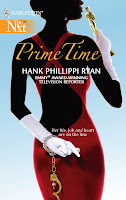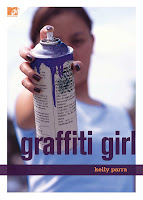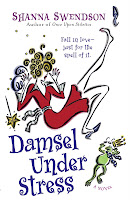STATUS: I feel great by getting a jump on the day by blogging early. Later it could be crazy. Hard to say. I’ve got lots on the To-do list but that’s always true.
What’s playing on the iPod right now? EMPEROR’S NEW CLOTHES by Sinead O’Connor
I think Rachel Vater is one smart agent so I want to point people to her recent blog about ineffective agents. In fact, I’m even going to point to an article I read recently by writer Victoria Strauss as well. Excellent information and should be required reading for any new writer wanting to enter the industry.
There are such things as well-intentioned but ineffective agents (because any Joe Schmoo can hang out a shingle without ever having worked in the industry). These aren’t scammers, mind you, just folks who actually want to agent and have good intentions but not the background or the contacts to really make it work.
And can you imagine having an agent who has never negotiated the deal points or a publishing contract, has few or no editor contacts, has no idea how to run an auction, has no connections for foreign rights or Hollywood?
I mean, why bother with paying a 15% commission? You might as well do your own submission and contract for all the good this “agent” is going to do you.
And unfortunately, a lot of these “agents” do the conference circuit but not much else (like selling books). Although lately, I haven’t been seeing some of the ‘old regulars’ so maybe a lot of conference organizers have wised up.
So how do you know who these people are because I’m not going to list them here?
Easy. A look at their websites can pretty much tell you. And don’t fool yourselves, the websites are professionally done but where is the track record of sales? Most of these “agents” have been in business for years (by their own admission) but have only a few sales that can be found on their website or even by Googling. If an agent has been in business for 3 or 4 years or more, you should be able to find lots of book sales if they are an effective agent/agency.
Here’s another factor. Now that you’ve looked at the number of sales, who are the sales to? Are they just to small publishers (and let me highlight that there is nothing inherently wrong with selling to small publishers so don’t leap to any conclusions) but the number should not be disproportionately high in comparison to sales to major publishers. It should be balanced.
Why do I point this out? As agents, we make money off commission and the truth is that the main money comes from the larger publishers who can afford to pay decent advances. And yes, there can be some good money at smaller publishers. I’m not knocking them.
And you can tell who is a good agent by analyzing the website and how they highlight their books. Good agents want to sell more books so they spotlight them on their web page. Pretty simple.
Ineffective agents seem to bury the information. They might have only 4 or 5 covers on the website (all small publisher sales but not always) and other sales seem hard to find. They might list their “authors” and the author titles but there is no publisher info included so are these clients published or unpublished?
The website shouldn’t keep writers guessing.
Let me highlight some of the agent websites I just love so you can see what I’m talking about.
I actually don’t personally know Laura Dail but I love her agency website and always have. You can even click on a button that says “in stores now.” These are books that Laura or other agents at her agency have sold to publishers. She even has a nice news page with recent sales.
There’s no disguising what she and her agency has been up to. Speaking of, I need to snag that new Sarah Mlynowski novel…
My friend Laura Rennert works at the Andrea Brown Literary Agency and big thumbs up to their newly redesigned site. I like it! Once again, look at the home page. They even have a button that reads ‘Clients and Sales.’ You click on it and voila, lots of great sales going down (and why didn’t I see the manuscript for THIRTEEN REASONS WHY? Sounds awesome!)
And here’s even a website for a fairly new agent, Kate Epstein (whom I know). She was a nonfiction editor at Adams Media before going out on her own in 2005.
Click on her “news” button. Look at all these great sales in such a short time to such houses a Berkley, Wiley & Sons, her own stomping grounds Adams Media, and Kensington.
So in two years, she has more sales than some, ahem, “agents” who have been in business for years.
So that’s how you know if an agent is a “good agent” versus an “ineffective agent.”
The sales track record doesn’t lie.
Correction: Commenter is indeed correct. Victoria Strauss is a writer (and one of the lovely watch dogs of Writer Beware) and not an agent. My apologies for the mix-up.



